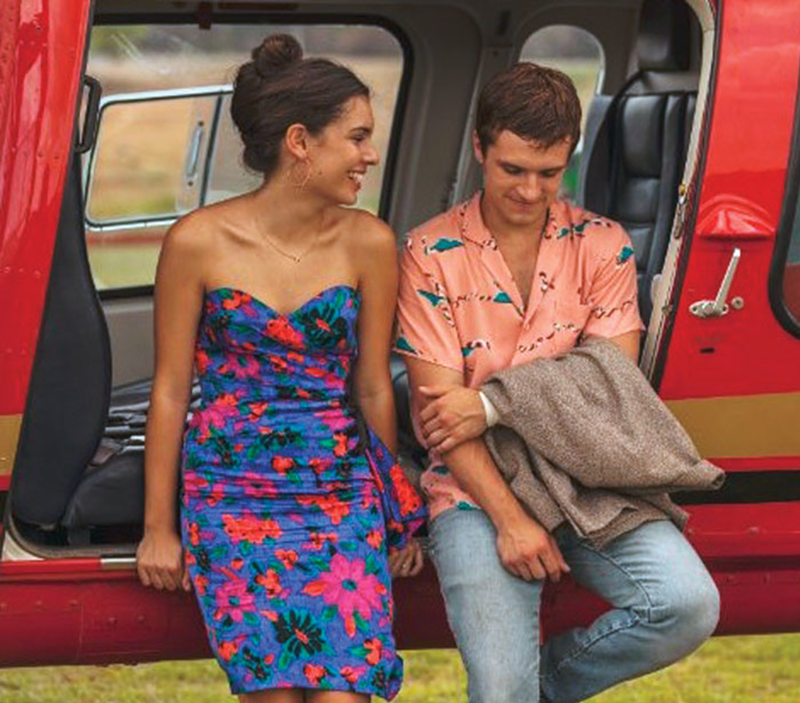Earlier this year, in McFarland, USA (from director Niki Caro) —featuring Kevin Costner as Jim White, the reluctant yet devoted coach of a cross-country team in a small migrant community in California — we experienced life through the eyes and situation of White and his resilient all-American family. White is the stereotypical highly principled coach, a gruff disciplinarian with a fair-minded moral compass. He is the man we all strive to be, which is why this story, like all mythic American narratives, must be framed from this perspective.
But why, I remember thinking while enjoying the expertly executed Disney sports-drama formula during the packed pre-release screening, couldn’t we see this inspiring tale from the point of view of one of the Hispanic kids drafted onto that initial ragtag squad? What was it like for them to watch this White guy, this outsider, come into their community and attempt to coerce them into forming a team in a sport that, to most, is a seemingly random activity with no “scoring” goal? And what about the challenges of taking this on in the face of tough family and financial responsibilities — training time would cut into the earning potential of each team member who could be working in the fields.
McFarland, USA covers this ground, yes, but it does so from the white-male gaze. It is his version of McFarland that makes this an American tale, or so we are led to believe.
A similar debate arose for me while watching debut feature writer-director Andrea Di Stefano’s Escobar: Paradise Lost. Having appeared as an actor in a host of projects (Before Night Falls, Nine and Life of Pi, to name a few), Di Stefano, born in Rome, kicks off the next phase of his career behind the camera, exploring another mythos — criminal empires, and one with ties to America.
Hollywood has had a fascination with Pablo Escobar, the infamous Colombian drug trafficker, and it is definitely not hard to fathom the reasons why. Escobar was a complicated figure — a Robin Hood-styled common man of the people, building up a community while ruthlessly controlling a multi-million-dollar drug trade. Of course, the United States had conflicting concerns regarding Escobar because he was earning his fortune and distributing his illicit wares in our backyard.
Di Stefano’s film posits that Escobar’s tale is about the loss of an innocent paradise, and apparently the only way to fulfill that template is to feature a white outsider who appreciates the natural purity of the situation, gets seduced by the dark evils lurking in the jungles and must fight to redeem himself and reestablish some sense of the natural order. Here, that falls to a young Canadian named Nick (Josh Hutcherson), a little surfer boy who follows his older brother Dylan (Brady Corbet), a former surfer seeking to rediscover some joy in life. They look to set up a peaceful beach enclave where they can run a bar/restaurant and Nick can give surfing lessons for the rest of their days.
That all changes when Nick meets Maria (Claudia Traisac), an idealist building clinics for the poor who questions Nick’s intentions but quickly falls for his wide-eyed exuberance. The fix is in, though, because Maria is the niece of Pablo Escobar (Benicio Del Toro), using his money to fund her community projects. Through Maria, we see Pablo as a family man, playing in his lavish pool with his children, while his rather large extended family and his crew enjoy the spoils of their ill-gotten gain.
The truly curious aspect of the story, though — and what compelled me to compare Escobar: Paradise Lost to McFarland, USA — is Maria’s admission to Nick, once he has met the family and experienced the good life within the compound, that she knows Escobar has earned his money through cocaine. She explains it in such a matter-of-fact fashion that I couldn’t help wondering why we weren’t privy to her story, rather than Nick’s.
The real loss of innocence and paradise comes when Maria starts to realize what it takes for her uncle to provide such a lifestyle. The costs are high and deadly. But such knowledge upfront challenges and changes our conception of what paradise is. Maybe it is not merely a pure and untouched utopian space. What if, instead, it is born of hard practical realities and a series of compromises?
The only way to ever confront this possibility would be to look at the situation from another angle, allowing for the fact that everyone defines paradise differently. I wish Di Stefano had considered that notion; instead he has given audiences yet another installment in the imperiled white-male genre, which gets lost even while following the generic playbook. (Opens Friday at Esquire Theatre) (R) Grade: D+


